Abstract
In a residential research ward the reinforcing and subjective effects of caffeine were studied under double-blind conditions in volunteer subjects with histories of heavy coffee drinking. In Experiment 1, 6 subjects had 13 opportunities each day to self-administer either a caffeine (100 mg) or a placebo capsule for periods of 14 to 61 days. All subjects developed a clear preference for caffeine, with intake of caffeine becoming relatively stable after preference had been attained. Preference for caffeine was demonstrated whether or not preference testing was preceded by a period of 10 to 37 days of caffeine abstinence, suggesting that a recent history of heavy caffeine intake (tolerance/dependence) was not a necessary condition for caffeine to function as a reinforcer. In Experiment 2, 6 subjects had 10 opportunities each day to self-administer a cup of coffee or (on different days) a capsule, dependent upon completing a work requirement that progressively increased and then decreased over days. Each day, one of four conditions was studied: caffeinated coffee (100 mg/cup), decaffeinated coffee, caffeine capsules (100 mg/capsule), or placebo capsules. Caffeinated coffee maintained the most self-administration, significantly higher than decaffeinated coffee and placebo capsules but not different from caffeine capsules. Both decaffeinated coffee and caffeine capsules were significantly higher than placebo capsules but not different from each other. In both experiments, subject ratings of "linking" of coffee or capsules covaried with the self-administration measures. These experiments provide the clearest demonstrations to date of the reinforcing effects of caffeine in capsules and in coffee.
Full text
PDF
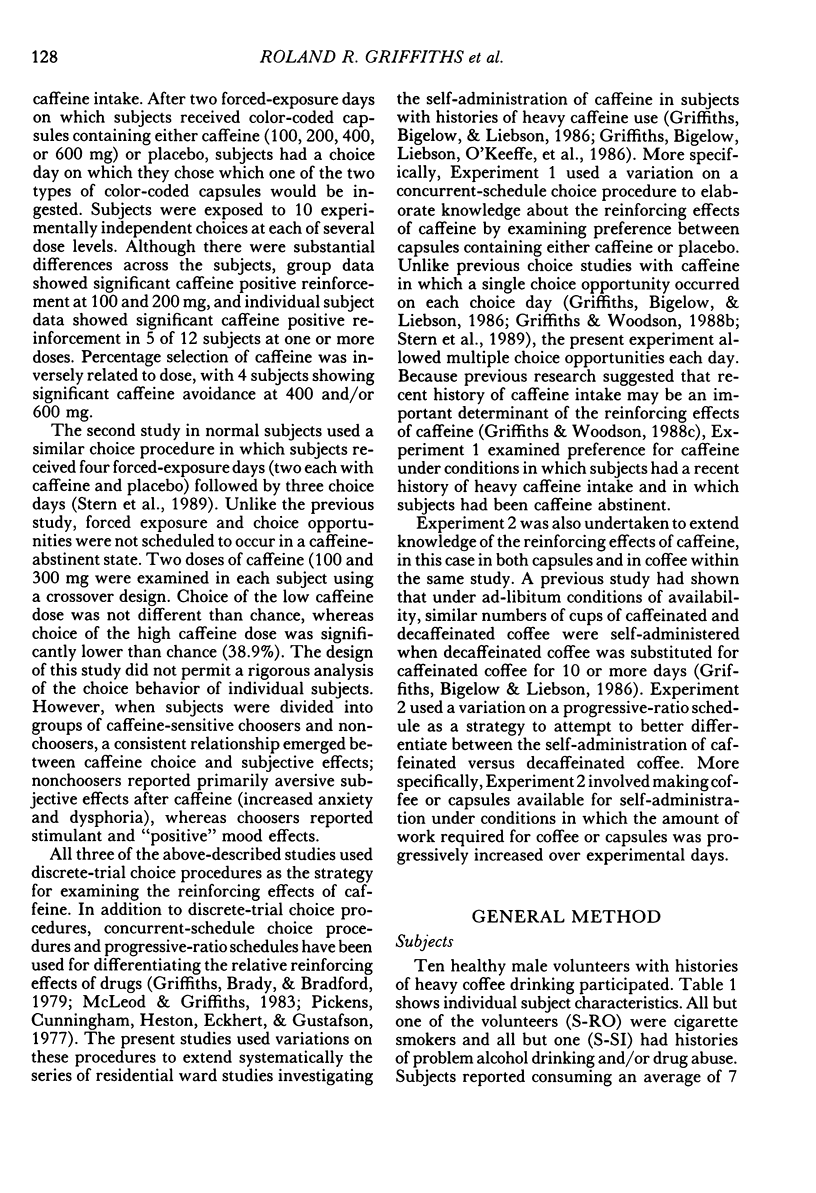
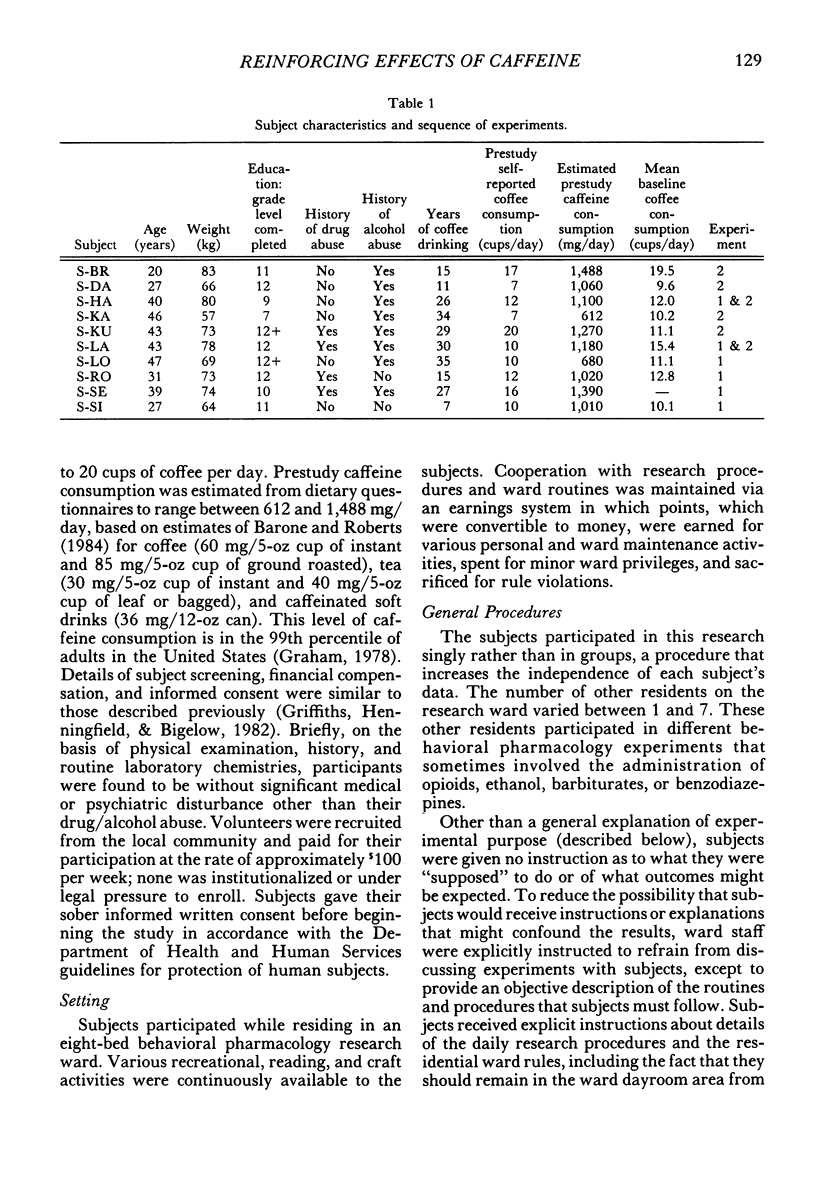

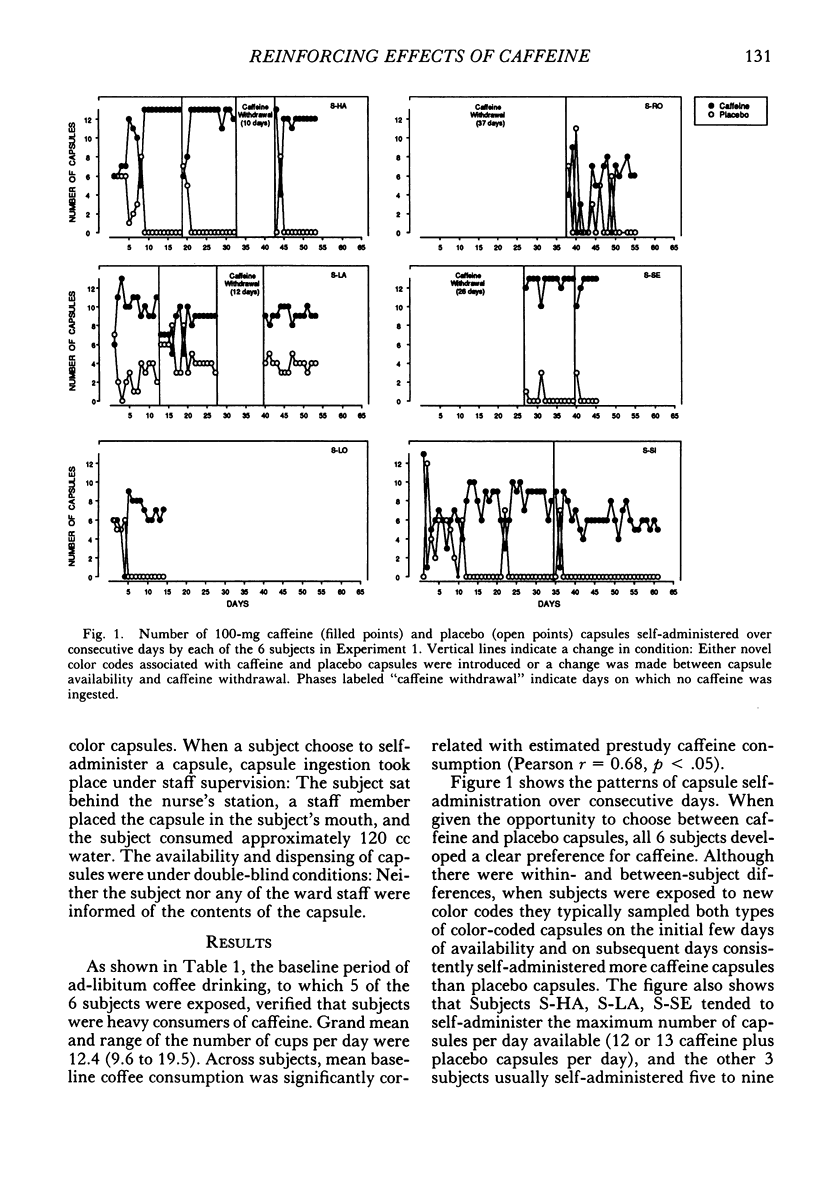


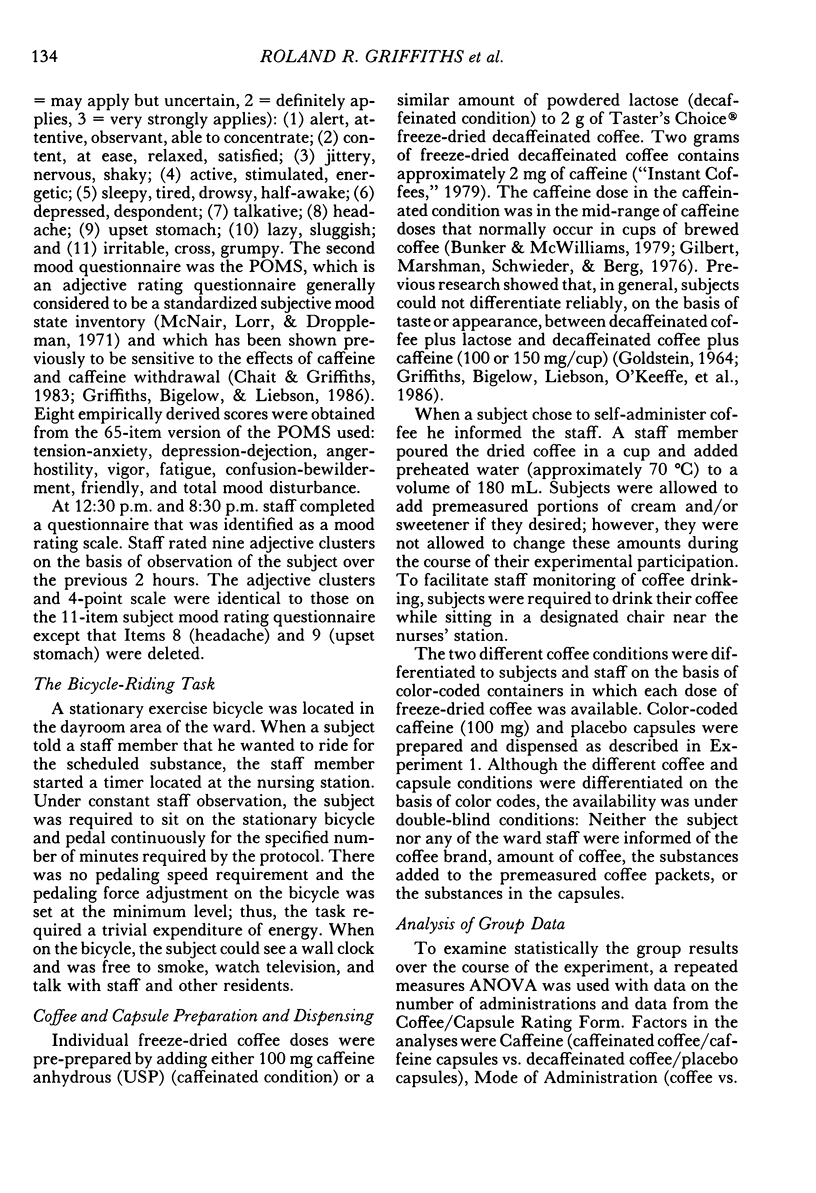
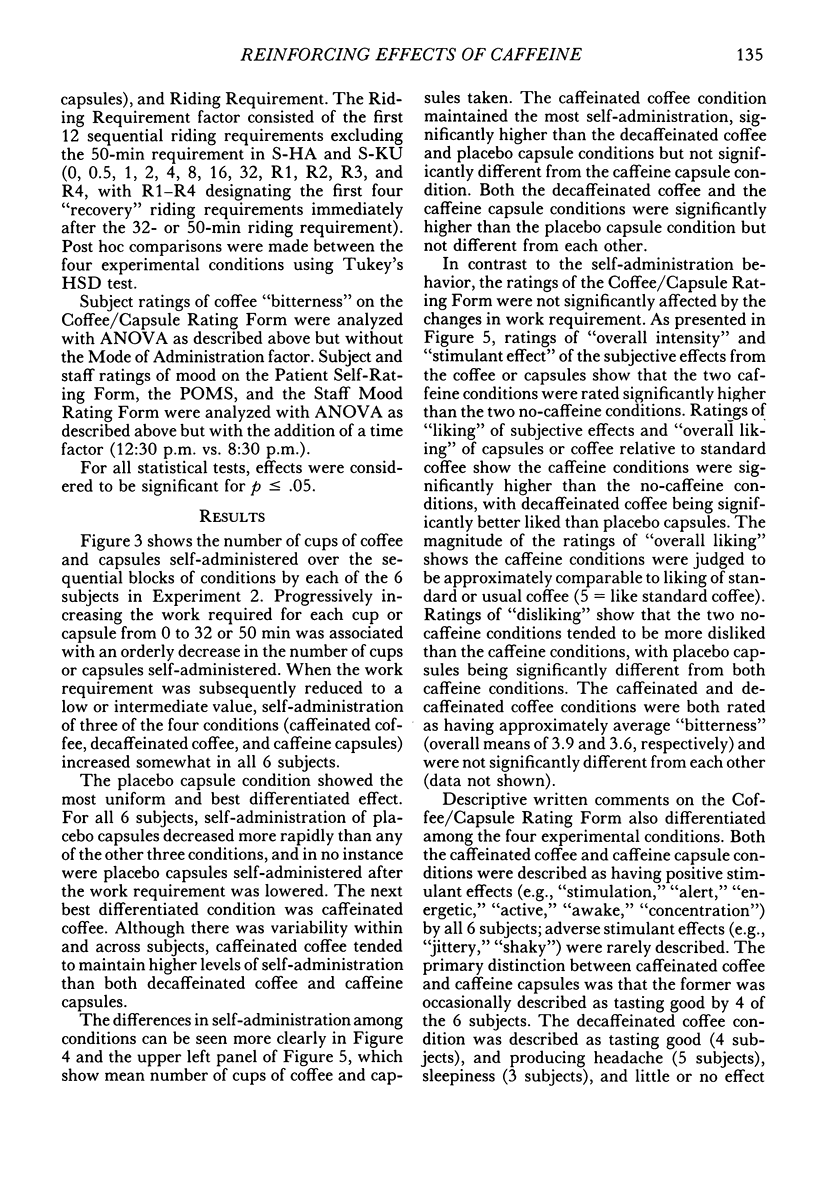
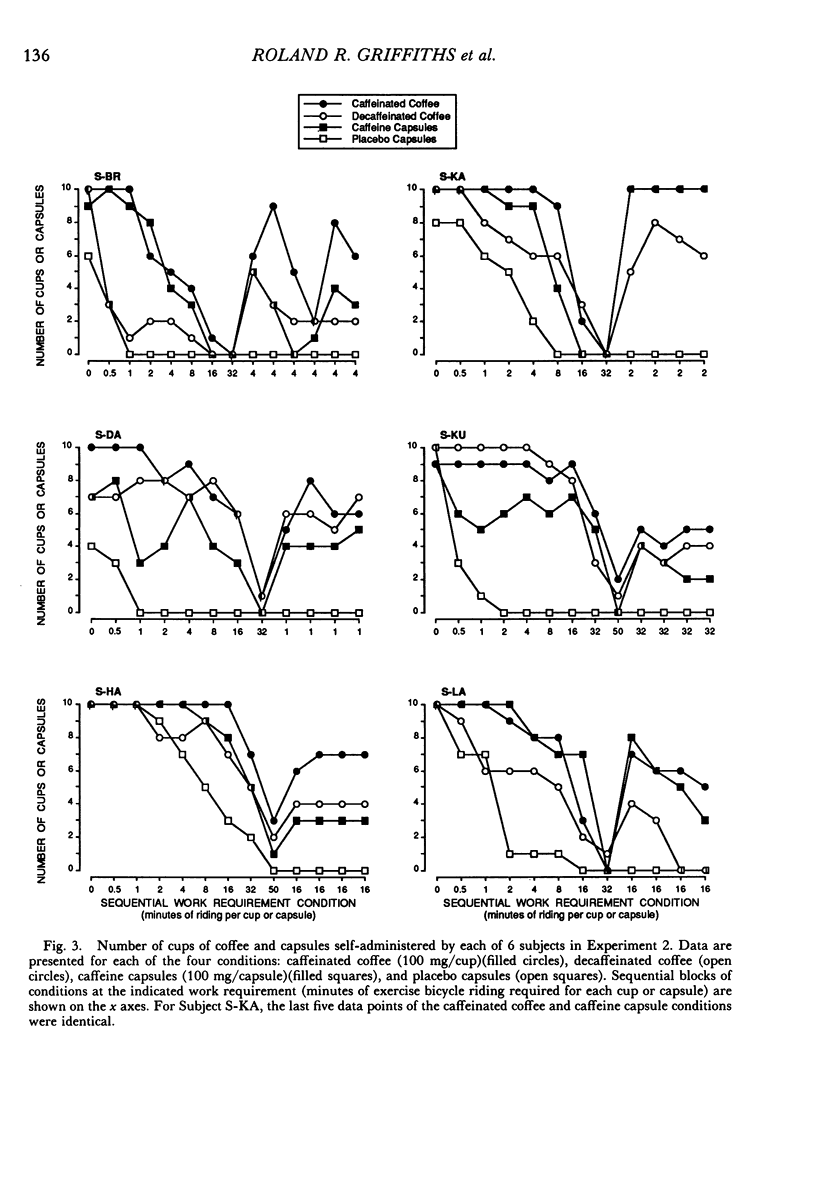
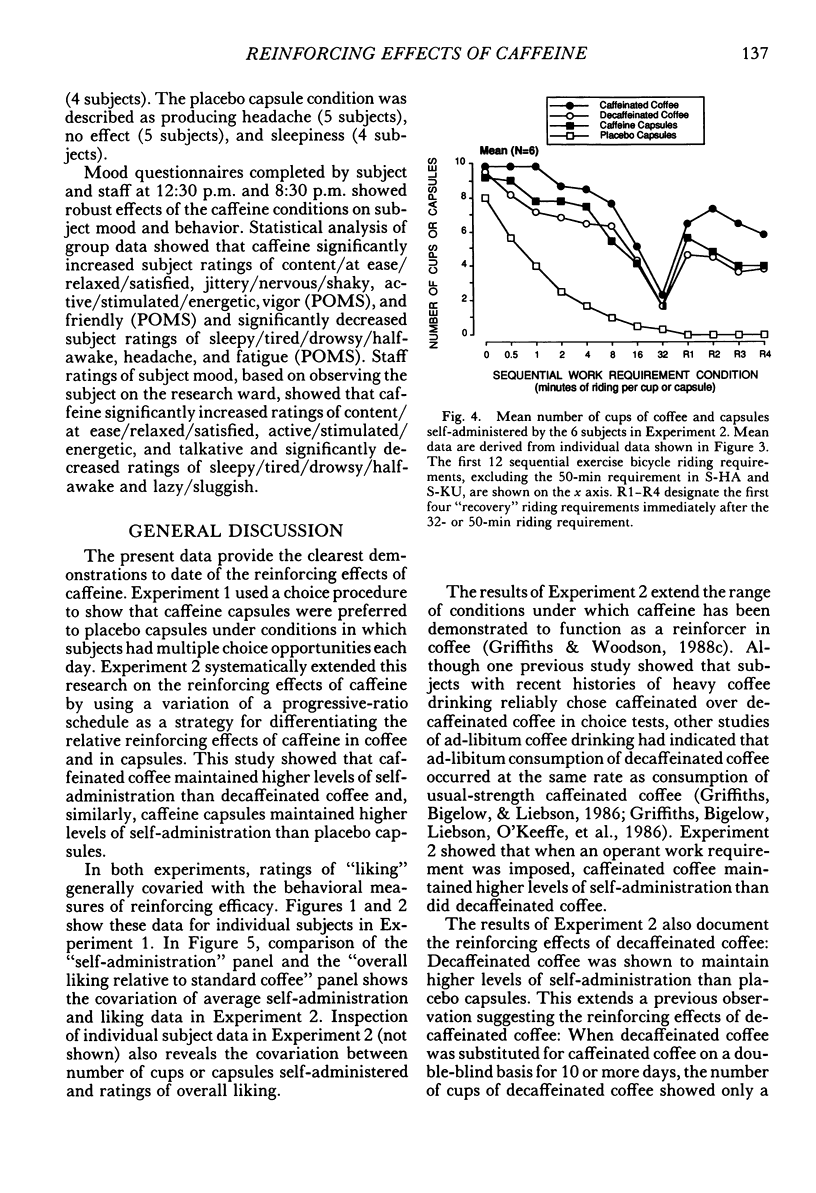
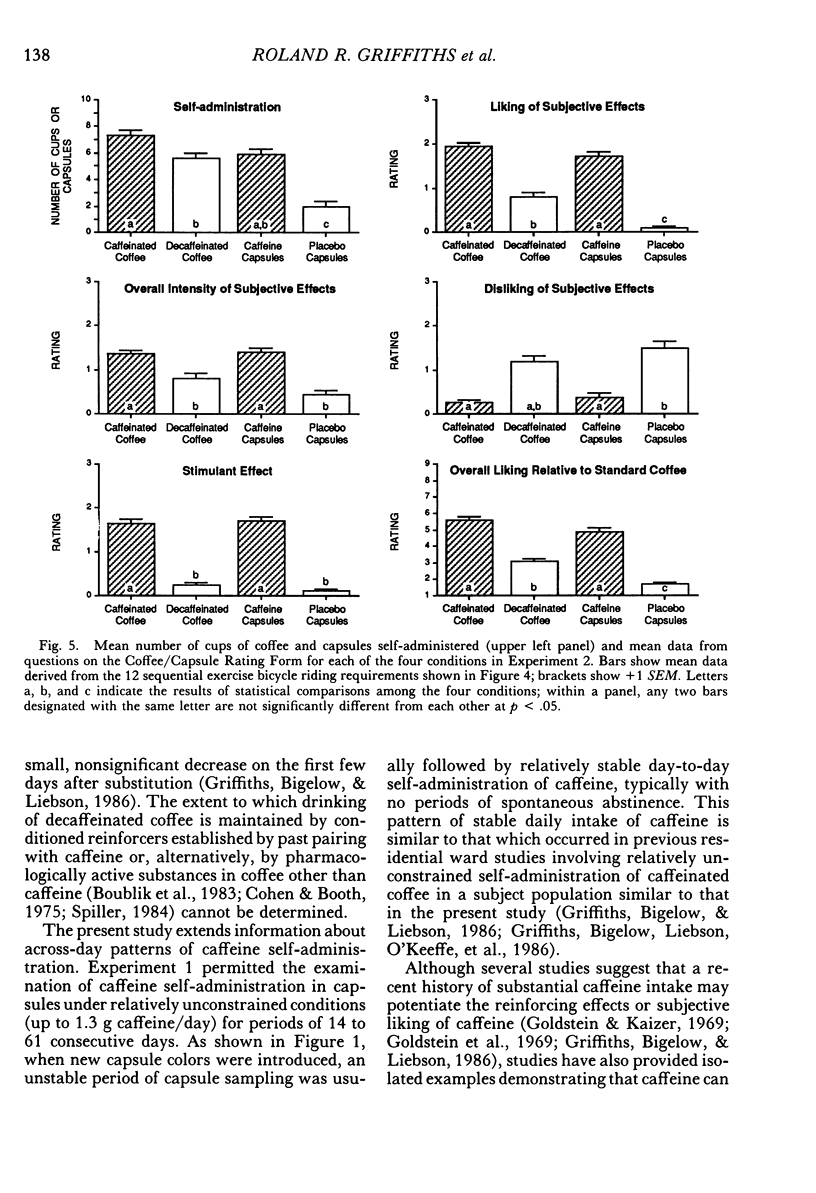
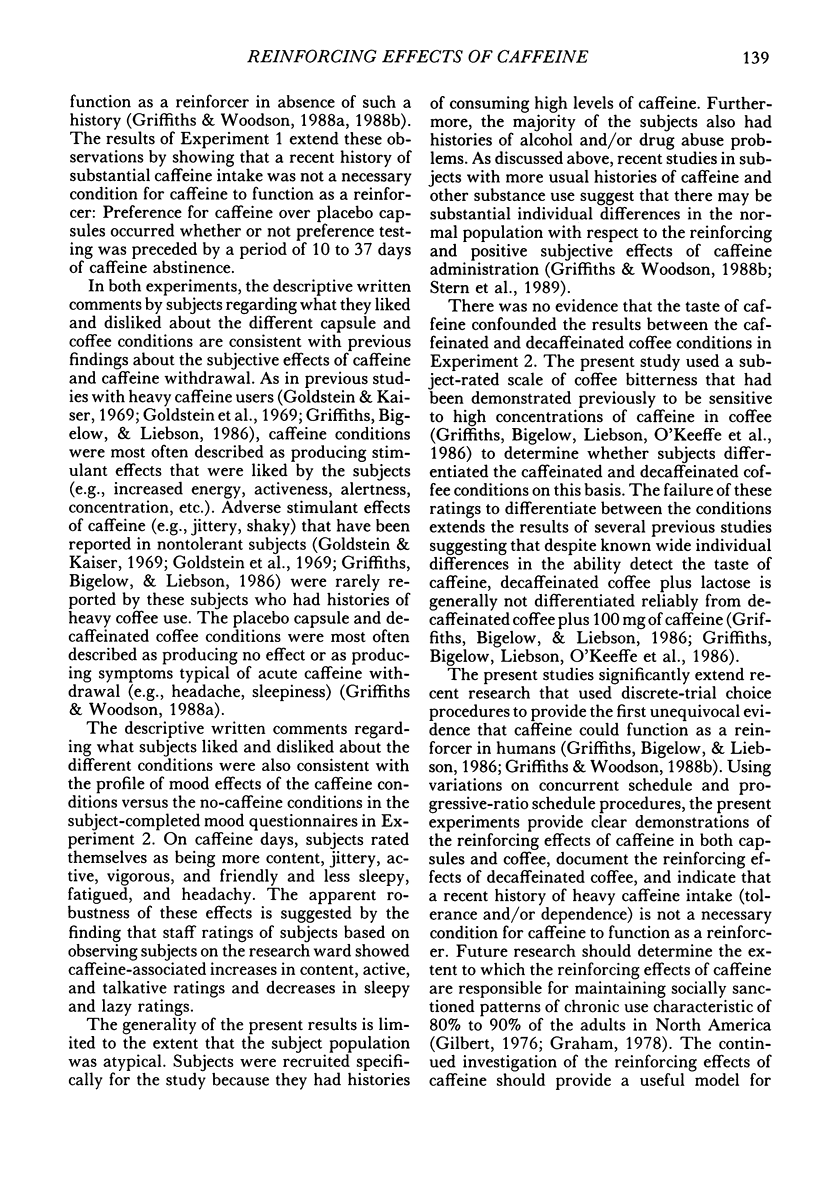
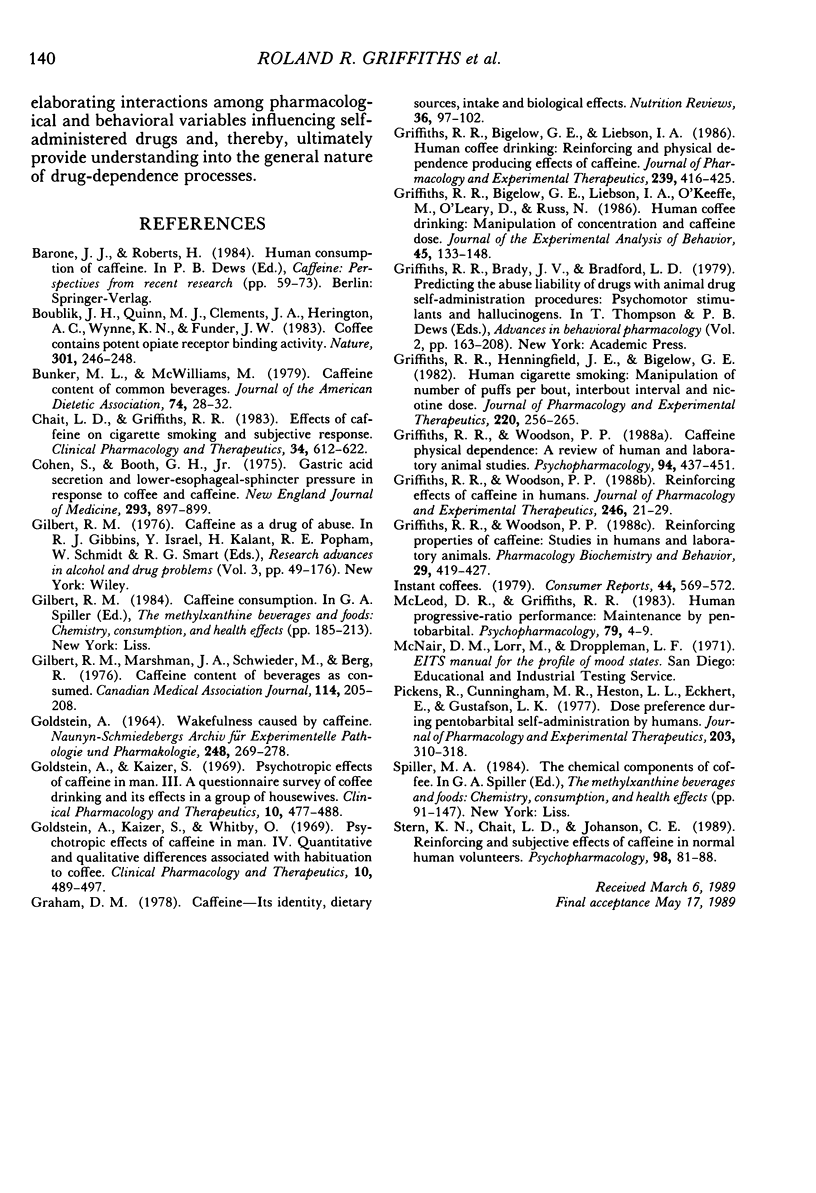
Selected References
These references are in PubMed. This may not be the complete list of references from this article.
- Boublik J. H., Quinn M. J., Clements J. A., Herington A. C., Wynne K. N., Funder J. W. Coffee contains potent opiate receptor binding activity. Nature. 1983 Jan 20;301(5897):246–248. doi: 10.1038/301246a0. [DOI] [PubMed] [Google Scholar]
- Bunker M. L., McWilliams M. Caffeine content of common beverages. J Am Diet Assoc. 1979 Jan;74(1):28–32. [PubMed] [Google Scholar]
- Chait L. D., Griffiths R. R. Effects of caffeine on cigarette smoking and subjective response. Clin Pharmacol Ther. 1983 Nov;34(5):612–622. doi: 10.1038/clpt.1983.223. [DOI] [PubMed] [Google Scholar]
- Cohen S., Booth G. H., Jr Gastric acid secretion and lower-esophageal-sphincter pressure in response to coffee and caffeine. N Engl J Med. 1975 Oct 30;293(18):897–899. doi: 10.1056/NEJM197510302931803. [DOI] [PubMed] [Google Scholar]
- GOLDSTEIN A. WAKEFULNESS CAUSED BY CAFFEINE. Naunyn Schmiedebergs Arch Exp Pathol Pharmakol. 1964 May 25;248:269–278. doi: 10.1007/BF00348597. [DOI] [PubMed] [Google Scholar]
- Gilbert R. M., Marshman J. A., Schwieder M., Berg R. Caffeine content of beverages as consumed. Can Med Assoc J. 1976 Feb 7;114(3):205–208. [PMC free article] [PubMed] [Google Scholar]
- Goldstein A., Kaizer S. Psychotropic effects of caffeine in man. 3. A questionnaire survey of coffee drinking and its effects in a group of housewives. Clin Pharmacol Ther. 1969 Jul-Aug;10(4):477–488. doi: 10.1002/cpt1969104477. [DOI] [PubMed] [Google Scholar]
- Goldstein A., Kaizer S., Whitby O. Psychotropic effects of caffeine in man. IV. Quantitative and qualitative differences associated with habituation to coffee. Clin Pharmacol Ther. 1969 Jul-Aug;10(4):489–497. doi: 10.1002/cpt1969104489. [DOI] [PubMed] [Google Scholar]
- Graham D. M. Caffeine--its identity, dietary sources, intake and biological effects. Nutr Rev. 1978 Apr;36(4):97–102. doi: 10.1111/j.1753-4887.1978.tb03717.x. [DOI] [PubMed] [Google Scholar]
- Griffiths R. R., Bigelow G. E., Liebson I. A. Human coffee drinking: reinforcing and physical dependence producing effects of caffeine. J Pharmacol Exp Ther. 1986 Nov;239(2):416–425. [PubMed] [Google Scholar]
- Griffiths R. R., Bigelow G. E., Liebson I. A., O'Keeffe M., O'Leary D., Russ N. Human coffee drinking: manipulation of concentration and caffeine dose. J Exp Anal Behav. 1986 Mar;45(2):133–148. doi: 10.1901/jeab.1986.45-133. [DOI] [PMC free article] [PubMed] [Google Scholar]
- Griffiths R. R., Henningfield J. E., Bigelow G. E. Human cigarette smoking: manipulation of number of puffs per bout, interbout interval and nicotine dose. J Pharmacol Exp Ther. 1982 Feb;220(2):256–265. [PubMed] [Google Scholar]
- Griffiths R. R., Woodson P. P. Caffeine physical dependence: a review of human and laboratory animal studies. Psychopharmacology (Berl) 1988;94(4):437–451. doi: 10.1007/BF00212836. [DOI] [PubMed] [Google Scholar]
- Griffiths R. R., Woodson P. P. Reinforcing effects of caffeine in humans. J Pharmacol Exp Ther. 1988 Jul;246(1):21–29. [PubMed] [Google Scholar]
- Griffiths R. R., Woodson P. P. Reinforcing properties of caffeine: studies in humans and laboratory animals. Pharmacol Biochem Behav. 1988 Feb;29(2):419–427. doi: 10.1016/0091-3057(88)90180-3. [DOI] [PubMed] [Google Scholar]
- McLeod D. R., Griffiths R. R. Human progressive-ratio performance: maintenance by pentobarbital. Psychopharmacology (Berl) 1983;79(1):4–9. doi: 10.1007/BF00433007. [DOI] [PubMed] [Google Scholar]
- Pickens R., Cunningham M. R., Heston L. L., Eckert E., Gustafson L. K. Dose preference during pentobarbital self-administration by humans. J Pharmacol Exp Ther. 1977 Nov;203(2):310–318. [PubMed] [Google Scholar]
- Stern K. N., Chait L. D., Johanson C. E. Reinforcing and subjective effects of caffeine in normal human volunteers. Psychopharmacology (Berl) 1989;98(1):81–88. doi: 10.1007/BF00442010. [DOI] [PubMed] [Google Scholar]


